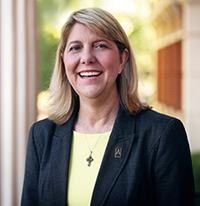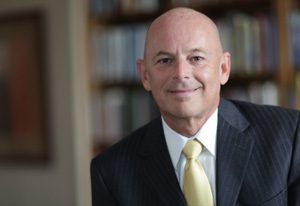WACO—Baylor University researchers are partnering with Harvard University scholars in a $43.4 million international project to investigate the factors that influence human flourishing.
The five-year Global Flourishing Study will involve 240,000 individuals in 22 countries and allow researchers to explore questions about what it means to live well and experience a sense of purpose.

Baylor’s Christian mission, its focus on being a top-tier research university and its commitment to finding solutions to global challenges makes the Global Flourishing Study “a natural fit” for the university, Baylor President Linda Livingstone said.
Research is one of the four pillars of Illuminate, Baylor’s strategic academic plan, and one of its five signature academic initiatives focuses on human flourishing, leadership and ethics, she noted.
The unprecedented scale of the study will provide a better understanding of religion’s role in human flourishing in a global context, said Byron Johnson, director of Baylor’s Institute for Studies of Religion.

“It’s an extraordinary opportunity for the Baylor-Harvard team to lead a panel study like this. Because our sample size is so large, we will be able to examine all of the world’s great religions and the role, if any, that they play in human flourishing,” said Johnson, co-director of the study with Tyler VanderWeel, director of the Human Flourishing Program at Harvard.
The study will involve individuals from Argentina, Australia, Brazil, Egypt, Germany, India, Indonesia, Israel, Japan, Kenya, Mexico, Nigeria, the Philippines, Poland, Russia, Turkey, South Africa, Spain, Tanzania, Ukraine and the United Kingdom, along with the United States.
Preparation for the study began in 2018, and pilot work in each of the 22 countries took place between January and June this year.
The study’s longitudinal design will enable researchers to advance substantially scientific knowledge about the determining factors of human flourishing, VanderWeel noted.
Sign up for our weekly edition and get all our headlines in your inbox on Thursdays
“The Global Flourishing Study is exactly the type of work needed to deeply understand the interplay of key elements in human experience that help us live well, be happy and experience a sense of meaning and purpose,” he said.
An open-access resource
In addition to Baylor and Harvard, the initiative utilizes Gallup’s data collection and management expertise, as well as the Center for Open Science’s coordination and leadership.
By working with the Center for Open Science, researchers will make data from the Global Flourishing Study an open-access resource available to other researchers, as well as journalists, policymakers and educators worldwide.
“The rigor and transparency applied to its analysis will increase trust in the research that comes from this work and will lower barriers to worldwide, equitable access to this information,” said David Mellor, director of policy at the Center for Open Science.
Over the next five-plus years, researchers will analyze longitudinal data on the patterns and determinants of human flourishing, and they will explore their social, psychological, spiritual, political, economic and health-related causes.
“There are several examples of probability-based, nationally representative studies that track the same respondents over time in a single country, but few have attempted to cover multiple countries,” said Rajesh Srinivasan, global research director of the Gallup World Poll. “The scope of this project is unprecedented and likely to yield valuable insights for global survey research using this type of methodology.”
The largest funded research project in Baylor’s history
Overall, the project’s goal is to build a field of study around the science of human flourishing, producing research findings that will influence the direction of social and health policy.
“The Global Flourishing Study is a methodological innovation that can truly change the world—truly change how the world is led,” said Jim Clifton, Gallup CEO.
The $43.4 million initiative—the largest funded research project in Baylor’s history—depends on support from a consortium of funders including the John Templeton Foundation, the Templeton Religion Trust, the Templeton World Charity Foundation, the Fetzer Institute, the Paul Foster Family Foundation, the Wellbeing for Planet Earth Foundation, Well Being Trust and the David & Carol Myers Foundation.
In addition to Johnson, other faculty from Baylor’s Institute for Studies of Religion serving on the Global Flourishing Study team include Matt Bradshaw, Alex Fogleman, Sun Joon Jang, Philip Jenkins, Thomas Kidd, Matthew T. Lee, Robert Woodberry and George Yancey.
Other scholars representing a variety of disciplines who will be part of the research team are Merve Balkaya-Ince, Brendan Case, Ying Chen, Jeff Levin, Tim Lomas, Katelyn Long, Van Pham, Sarah Schnitker, and John Ssozi.
Based on information provided by Lori Fogleman of Baylor University Media & Public Relations, with additional reporting by Managing Editor Ken Camp.














We seek to connect God’s story and God’s people around the world. To learn more about God’s story, click here.
Send comments and feedback to Eric Black, our editor. For comments to be published, please specify “letter to the editor.” Maximum length for publication is 300 words.